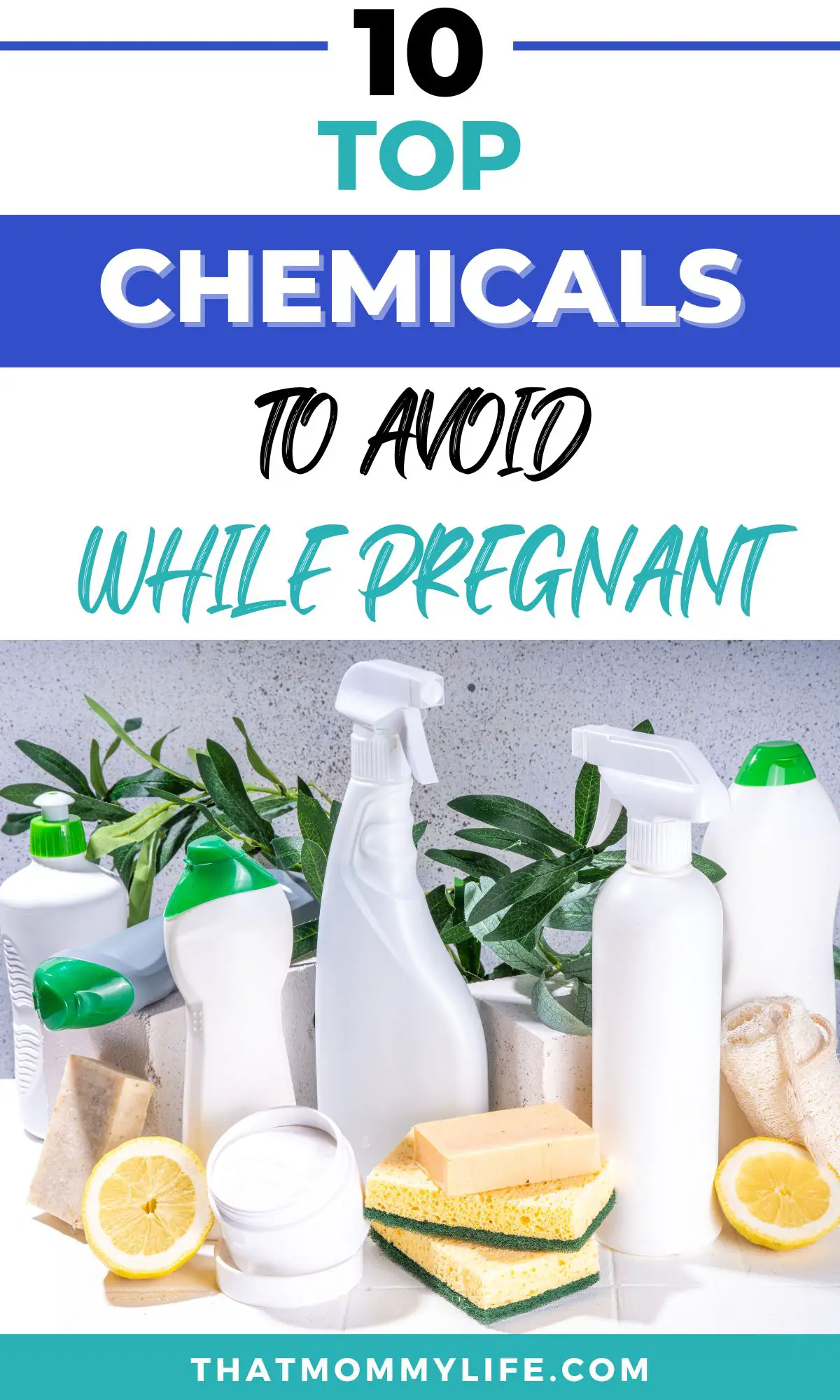Disclosure: Some of the links below are affiliate links. At no cost to you, I will earn a commission if you click through and make a purchase.
Pregnancy is a time of profound joy and anticipation, and ensuring a healthy environment for both mom and baby becomes a top priority.
One way to contribute to a healthy pregnancy is by being mindful of the chemicals you encounter in your daily life.
In this article, I’ll explore common chemicals to avoid during pregnancy, helping expectant moms make informed choices for a safer and more nurturing journey.
1. Bisphenol-A (BPA)
Found in many plastic products, including food containers, water bottles, and the lining of canned goods, BPA has been associated with potential hormonal disruptions.
Opt for BPA-free containers and choose fresh, whole foods over canned options when possible.
2. Phthalates
Phthalates are often found in personal care products, fragrances, and certain plastics. These chemicals have been linked to developmental issues and can be absorbed through the skin.
Choose phthalate-free beauty and personal care products to minimize exposure.
3. Parabens
Commonly used as preservatives in cosmetics and personal care products, parabens can mimic estrogen in the body.
Look for paraben-free alternatives in skincare, lotions, and makeup to reduce potential hormonal disruption.
4. Perfluorooctanoic Acid (PFOA)
PFOA is commonly used in non-stick cookware and water-resistant fabrics.
Choose cookware with safer surfaces like stainless steel or cast iron, and opt for natural fiber clothing instead of items treated with water-resistant chemicals.
5. Formaldehyde
Found in some cleaning products, nail polishes, and hair straightening treatments, formaldehyde is a known carcinogen.
Opt for natural and chemical-free alternatives in cleaning products and beauty treatments to reduce exposure.
6. Toluene
Toluene is commonly found in nail polish and paint thinners. Pregnant women should avoid using nail products containing toluene or choose well-ventilated areas when using products with this chemical.
7. Ammonia
Commonly found in cleaning products, ammonia can be harsh and irritating. Opt for natural and non-toxic cleaning alternatives to reduce exposure to harmful fumes during pregnancy.
8. Organophosphate Pesticides
Found on conventionally grown fruits and vegetables, organophosphate pesticides have been associated with adverse pregnancy outcomes. Whenever possible, choose organic produce to minimize exposure to these potentially harmful chemicals.
9. Artificial Fragrances
Fragrances in air fresheners, perfumes, and some personal care products often contain a mix of undisclosed chemicals. Opt for fragrance-free or naturally scented products to avoid potential irritants.
10. Lead
Exposure to lead, found in some old pipes, lead-based paints, and certain imported goods, can be harmful during pregnancy.
Ensure your home is lead-safe, especially if it was built before 1978, and be cautious with traditional or handmade items that may contain lead-based materials.
Conclusion
Being mindful of the chemicals you encounter during pregnancy is a proactive step toward creating a healthy and nurturing environment for both you and your baby.
While it may be challenging to eliminate all exposures, making informed choices and opting for safer alternatives can significantly reduce potential risks.
Always consult with your healthcare provider if you have concerns about specific products or chemicals, and prioritize your well-being as you embrace the journey to motherhood.
Pin this image so you can find this post later!

As an Amazon Associate I earn from qualifying purchases.
